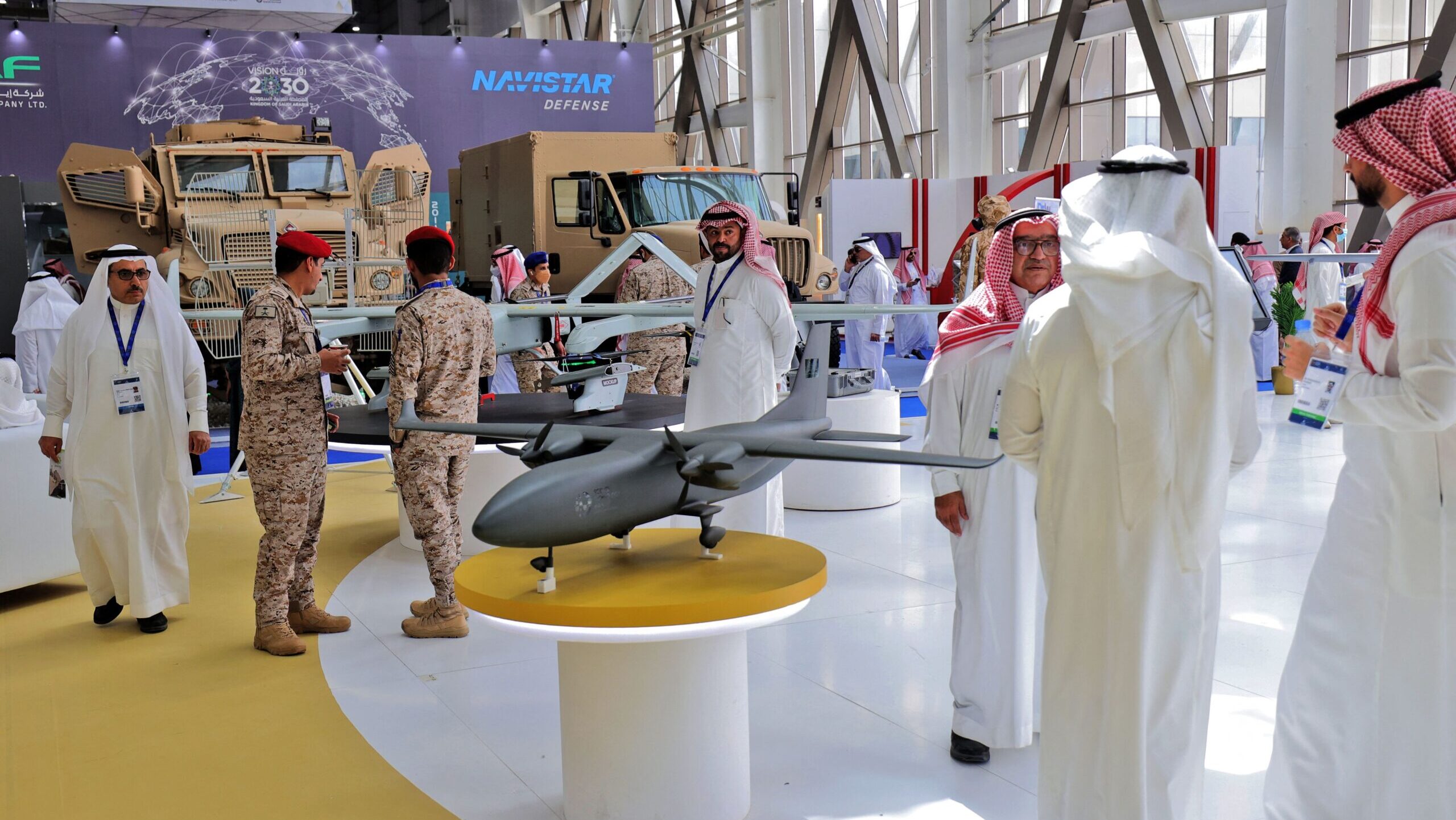US, Western allies should look to ‘friendshoring’ defense production in the Middle East: Report

BEIRUT — To ease the burden on US and Western defense industrial bases and fill supply chain gaps, officials should look to “friendshoring” some defense production to allies in the Middle East, according to a new report.
“[T]here is a unique opportunity now to enhance the capacity of our partners in the Middle East, and thus our collective capacity as well,” the report states.
The report, published Wednesday by the Jewish Institute for National Security of America, says the West should look to Israel, Saudi Arabia, the United Arab Emirates and Bahrain, in particular, and take “crawl, walk, run” approach to benefit from untapped Middle East potential.
First, partners should take advantage of such low hanging fruit: the raw materials, shells, fuses, propellant charges for 155 mm artillery and unmanned aerial systems UAS, that can be coproduced with these states, benefiting from their national strategy for localization of defense production. (Both Saudi Arabia and the UAE have launched ambitious initiatives to produce 50 percent of defense articles in-country by 2030.)
For example, by “pairing Israel’s high-technology defense sector and its growing DIB [defense industrial base] capacity with our Gulf partners’ massive capital and demonstrated ambitions to diversify global supply chains that support national security needs, the United States could expedite production of directed energy systems to counter, at sustainable cost, shared asymmetric threats from attritable drones, rockets, and missiles like those used in abundance by Iran’s proxy axis and by Russian forces attacking Ukraine,” the report says.
Those kinds of projects would build toward longer-term efforts like coproducing air/missile defense interceptor components and codeveloping new systems and technologies.
The report says that working closely with the Middle Eastern states will help boost security in the region and “contribute to solving the aggregate global DIB [Defense Industrial Base] challenge.” The report also highlighted the need to streamline and simply the US Foreign Military Sales process to help in technology transfer to these states.
“Our Middle East partners have all expressed the need to bolster their capabilities to defend themselves. They have also significantly increased their defense spending. The United States can help accelerate these positive trends by supporting our partners in developing and maintaining sufficient defense production capacity, resilient supply chains, and access to technology,” the report says.
From a strategic perspective, the report highlights the significance of coproduction with these countries to face shared adversaries.
“Iran’s capacity and willingness to endanger the regional order is abetted by China, Russia, and North Korea, each of whom wants to divert U.S. attention and assets back into the Middle East and away from its own doorstep. By the same token, stoking conflicts that unleash violent extremism and waves of refugees threatens to undermine America’s partners in the Middle East, Europe, and elsewhere,” says the report.
It also highlighted that boosting defense coproduction with these states will reinforce US regional role.



